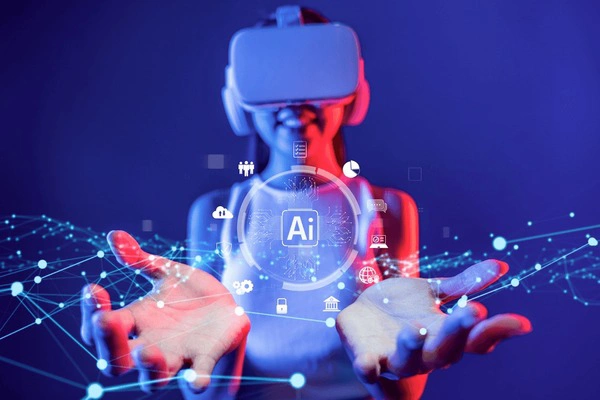
Enhancing Telemedicine with AI: Transforming Remote Healthcare
AI is enhancing telemedicine by offering real-time data analysis, improving remote patient monitoring, and making virtual consultations more efficient. This technological integration addresses healthcare accessibility and aims to provide equitable healthcare solutions for all.
Jackson Mitchell
29/11/2024 - 7 months ago

Revolutionizing Remote Patient Monitoring
Telemedicine has been a transformative force in healthcare, especially for those who face barriers to accessing traditional medical facilities. However, with the integration of Artificial Intelligence (AI), telemedicine is poised to reach new heights. AI can enhance remote patient monitoring by providing real-time data analysis, allowing healthcare providers to receive timely updates on their patients' conditions. This means that instead of patients waiting for days or weeks to see their doctors, they can get immediate insights into their health conditions, which can significantly improve their care.
One of the key benefits of AI in telemedicine is its ability to collect and analyze massive amounts of data quickly. For example, wearable devices that monitor heart rate, blood pressure, or glucose levels can now instantly alert healthcare providers of any concerning changes. AI algorithms can detect patterns that might be invisible to the human eye, identifying potential health risks before they become serious issues. This proactive approach can lead to earlier interventions and better health outcomes for patients.
Moreover, AI-driven telemedicine platforms are increasingly becoming user-friendly, making them accessible even to those with minimal technological skills. These platforms often feature simple interfaces that allow patients to easily navigate and understand their health data. As a result, patients are more empowered to manage their own health, leading to a more collaborative relationship between patients and healthcare providers.
Enhancing Virtual Consultations with AI
Virtual consultations have become a staple of modern healthcare, especially during the COVID-19 pandemic. AI plays a crucial role in enhancing these consultations by making them more efficient and effective. For instance, AI can help in triaging patients, determining the urgency of their conditions, and ensuring that those who need immediate attention are prioritized. This ensures that healthcare resources are used efficiently, without unnecessary delays.
AI can also assist doctors during virtual consultations by providing them with relevant patient data and medical history at their fingertips. This can significantly reduce the time doctors spend searching for information, allowing them to focus more on patient care. Additionally, AI can suggest possible diagnoses or treatment plans based on the latest medical research, supporting doctors in making informed decisions.
Furthermore, AI-powered chatbots can be used to conduct preliminary assessments before a virtual consultation. These chatbots can ask patients questions about their symptoms and provide initial advice or reassurance. This not only saves time for both patients and doctors but also ensures that patients receive prompt attention even before they speak to a human healthcare provider.
Addressing Challenges and Ethical Considerations
Despite the many advantages, integrating AI into telemedicine also presents significant challenges. Privacy and data security are major concerns, as sensitive patient information is collected and stored digitally. Ensuring that this data is protected from breaches is crucial to maintaining patient trust and complying with regulations. Robust encryption and security protocols must be in place to safeguard patient data.
Another challenge is ensuring the accuracy and reliability of AI algorithms. While AI can provide valuable insights, it is not infallible and can sometimes produce incorrect or biased results. Continuous monitoring and updating of AI systems are necessary to ensure they remain accurate and unbiased. This requires ongoing collaboration between AI developers, healthcare professionals, and regulatory bodies.
Ethical considerations also come into play when using AI in healthcare. It's essential to maintain transparency about how AI systems work and involve patients in decisions about their use. Patients should be informed about how their data is used and have a say in whether AI tools are applied in their care. This collaborative approach ensures that AI is used responsibly and respects patient autonomy.
The Future of AI-Driven Telemedicine
The future of telemedicine with AI integration looks promising, with potential for even greater advancements. As technology continues to evolve, we can expect AI systems to become more sophisticated and capable of handling more complex medical tasks. This could include advanced diagnostics and personalized treatment plans tailored to individual patients' genetic profiles.
As AI becomes more integrated into telemedicine, it's crucial to invest in training healthcare professionals to effectively use these technologies. This includes not only understanding how AI tools work but also interpreting AI-generated data to make informed clinical decisions. Education and training will be key in ensuring that healthcare providers can harness the full potential of AI in improving patient care.
Ultimately, the goal of integrating AI into telemedicine is to enhance the quality and accessibility of healthcare for everyone. By overcoming current challenges and prioritizing ethical considerations, AI-driven telemedicine can lead to a future where high-quality healthcare is available to all, regardless of location or socioeconomic status. This vision of equitable healthcare is within reach, thanks to the powerful combination of AI and telemedicine.


















